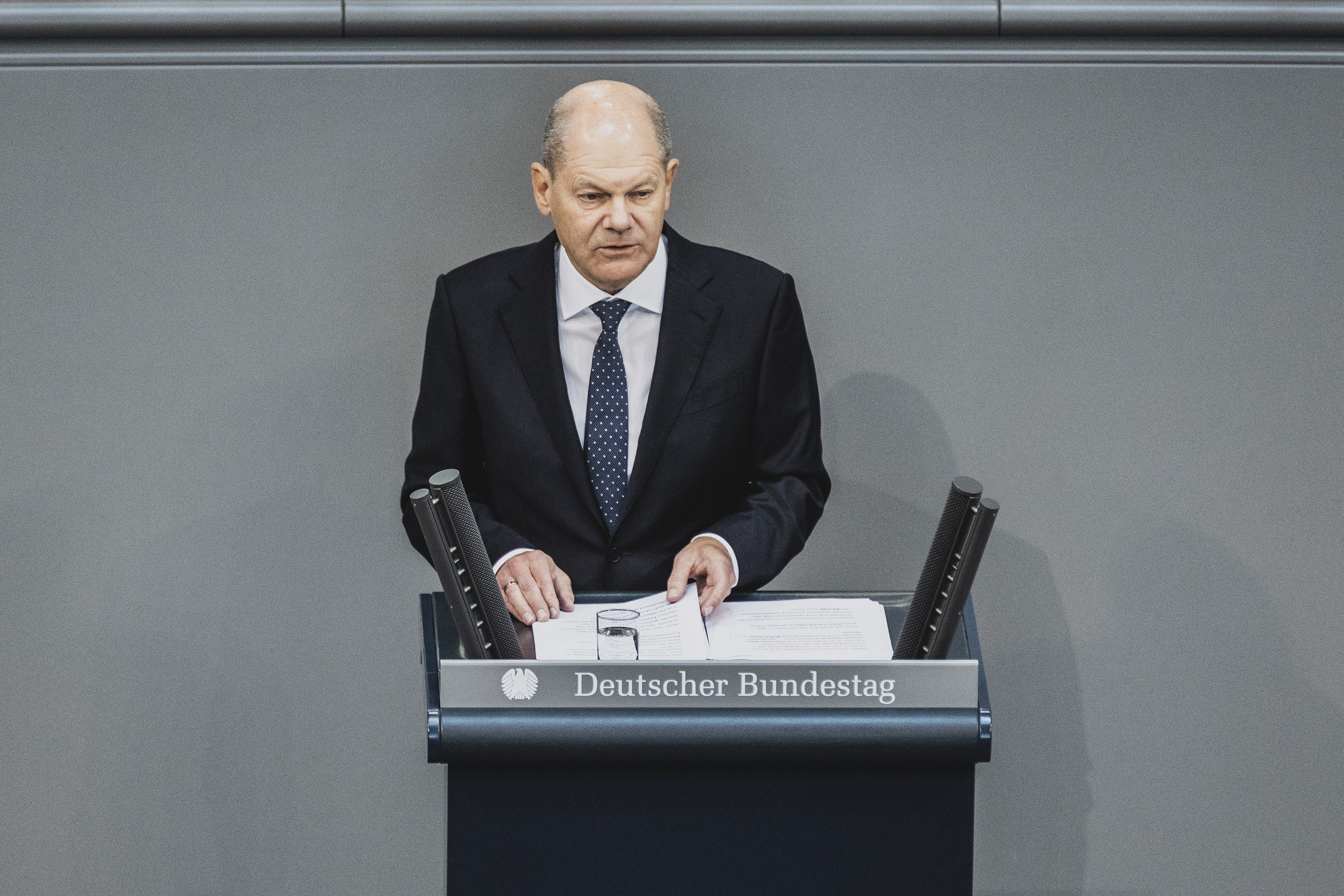EU Migration Summit
EU special summit: challenges for European migration policy

Olaf Scholz (SPD), Bundeskanzler, aufgenommen im Rahmen seiner Regierungserklaerung im Deutschen Bundestag vor dem ausserordentlichen EU-Rat
© picture alliance / photothek | Florian Gaertnerfreiheit.org: The extraordinary meeting of the European Council is to deal in particular with key migration issues and steps toward finalizing the New Pact on Migration and Asylum. In this context, what are the most urgent migration policy issues that should be on the agenda?
Xavier Aragall: Managing the entry of people into the EU is still the main problem. We are still far from regulating entry efficiently and coherently in the EU. The main issue here is to appropriately target the two types of migration movements, namely irregular entry across the Mediterranean on the one hand and the processing of asylum applications on the other. In both cases, there are conflicts of interest between the southern EU countries (Spain, Italy, Greece, Malta and Cyprus) and the northern and central European countries (Scandinavian countries, Netherlands, Austria). Some states located on the EU border cannot cope with the growing number of people on their coasts and in their ports and call for a solidarity mechanism to redistribute immigrants and asylum seekers.
On the other hand, given the demographic trends in the EU, there is a need to maintain an open channel for labor migration to respond to the growing demand for certain segments of the labor market that cannot be met in the short or medium term from the EU population. In this sense, the EU Commission's 2020 Migration Pact envisaged working in a concerted manner with countries of origin (migration partnerships) to organize an orderly immigration of certain professional profiles without negatively impacting the country of origin ("brain-drain").
Finally, measures aimed at limiting immigration of people should be reconsidered. On the one hand, expulsion orders are only partially enforced (less than a quarter of orders), leaving more and more people in the EU area in a legal predicament. On the other hand, the handling of search and rescue operations at sea (SAR operations) needs to be reconsidered. Neither criminal prosecution of sea rescue NGOs nor denial of port entry is an answer that is in line with the founding principles of the European Union.
In the coming months, FNF Madrid, together with IEMed, will present the results of a study on the coherence between climate change and migration in the Sahel, West Africa and the Maghreb. In your opinion, what are the main conclusions that should be taken into account in the debate on the migration issue?
First, I would like to emphasize that while climate change will alter existing migration flows (most of them within Africa), it is not yet possible to say with certainty what its long-term impact might be on the populations in the states concerned per se and, subsequently, on possible new migration flows.
Current climate change projections already suggest that climate change will have specific impacts depending on the geographic and socioeconomic context. In North Africa, the risk of water scarcity will affect both rural and urban areas; in the Sahel, the problem is focused on the impact on the labor market, as a large number of inhabitants are engaged in activities (food production, etc.) that are highly sensitive to climate change. In West Africa, climate change is seen as a risk multiplier that will affect existing risks such as population concentration in cities, erosion of the seacoast, and desertification of arable land.
What do you think is a relevant aspect that should be given more attention in the current migration debates?
The main push factor for emigration from Africa is the lack of future prospects, especially for young people, who make up about half of the population and for whom there is no adequate labor market. Likewise, there is a clear lack of knowledge about the economic and social reality with regard to living conditions and the labor market they will find in the destination country.
As part of the Friedrich Naumann Foundation's Mediterranean Dialogue project, the Madrid office, faced with the multiple challenges of migration management in the Mediterranean region, has launched the Migration Policy Group, an association of liberal policy makers and experts to coordinate and advance policies on migration issues across Europe.
Xavier Aragall is the Migration Programs Coordinator, a member of the Euromed Survey Scientific Team (2010-2019), and is currently the EuroMeSCo Migration and Survey Officer, responsible for coordinating field operations, questionnaire design, and quantitative analysis of results at the European Institute for the Mediterranean (IEMed)
